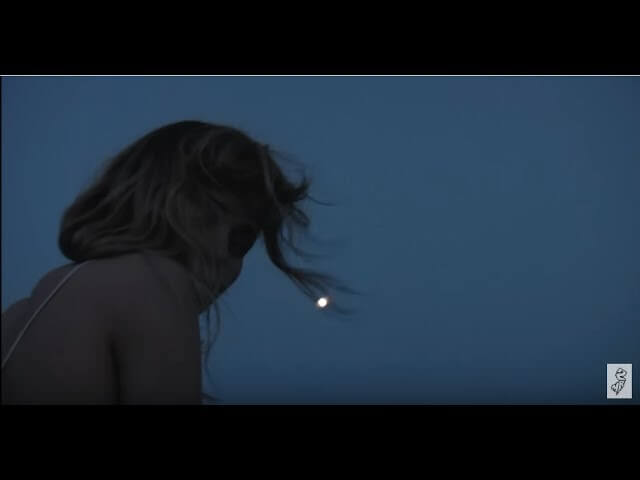Kedr Livanskiy's Ariadna brings you electronic music from Russia with love

Russia seems like a country particularly well-suited to producing electronic music. The winters are long and occasionally brutal, ideal weather for just holing up in a studio with a copy of Ableton. The sun disappears for months at a time, creating a cloudy, perpetual twilight that begs for moody washes of synth. The gray, modular blocks of Soviet brutalist architecture reflect the genre’s odd, mechanical beauty (and photos of it make for killer album covers). And most pertinently, it’s the kind of music you can make entirely on your own, then disseminate across the internet like a mysterious radio transmission from a nation that’s deliberately walled itself off.
That’s how Yana Kedrina came to the attention of 2MR bosses Mike Simonetti and Mike Sniper, who discovered her tracks—released under the name Kedr Livanskiy—on Soundcloud, then released her 2016 EP, January Sun. That home-recorded batch of songs had a bewitching sound that was predictably wintry but also unexpectedly warm, touched equally by Warp Records, swirling 4AD goth-pop, and the sci-fi experimentalism of Laurel Halo. It was among of the year’s most intriguing debuts, and one that seemed to point to an entire burgeoning scene of underground Russian electronic music just waiting to break. Needless to say, it set expectations high for her first full-length.
That album, Ariadna, retains the formula that made January Sun so enchanting—slightly austere electro beats, woozy ambient washes, Livanskiy’s own haunting voice, singing in a Russian dialect that (to American idiots) makes it all the more mysterious—and adds the depth and vitality of live analog synths. It’s a considerable leap in production value, even if it robs her music of some of its pirate radio mystique, and Livanskiy makes the most of what that expanse affords. But it suffers some from those high expectations; Ariadna is a very good album, and a perfectly fine introduction to the uninitiated. Yet it doesn’t quite connect the way the admittedly high standard set by January Sun suggested.
Still, it certainly doesn’t lack for beautiful moments, particularly in its first half. The opening title track builds from basic low frequency sweeps to blurred Boards Of Canada textures as Livanskiy sings (presumably) of the Greek goddess, in her hookiest chorus melody yet. “Sunrise Stop” starts similarly gently, with reverbed mutters and subdued tones that suddenly give way to gorgeously cascading synth chimes. Bereft of any beat, and with just a buried heart-monitor pulse and ’80s sci-fi soundtrack drones burbling beneath her voice, “Mermaid” has a stilling quality that recalls a wholly digitized This Mortal Coil. Throughout, Livanskiy establishes a candlelit mood that’s both inviting and elusive, romantic yet tantalizingly remote.
It’s at Ariadna’s midpoint that it stumbles, with Livanskiy inexplicably giving over the first half of “ACDC” to British singer-songwriter Martin Newell (The Cleaners From Venus), who proceeds to deliver a hammy, heavily echoed reading of William Blake’s “The Tiger” before the song gives way to air-raid synth blares over an acid house beat. It’s unclear what the connection is here—though presumably Livanskiy is an admirer of Newell’s own DIY music—or why they had to choose such an overly familiar poem, one that’s been robbed of all power through grudging elementary school recitals and shitty tattoos. Whatever the reasoning, “ACDC” spoils the mood, and Ariadna’s back half struggles to recover it, with “Za Oknom Vesna” searching vainly for direction or melody despite some lovely trance textures, and “Love & Cigarettes” struggling to take off at all in its rather slapdash, start-stop structure.
The purely ambient sketch of “Sad One” closes things on an expectedly somber note, its spaceship drones and textured church organs recalling the score to a lost Andrei Tarkovsky film, appropriately enough. But those who pick up the limited edition will end instead on the one-two punch of “Fire & Water” and “Sunset”—the former a minimalist, post-club banger built on a driving kick-drum throb and midnight-in-the-city synth waves; the latter a gauzy anthem that approaches a spiraling, Cocteau Twins-esque bliss. It’s a little confusing why these two tracks—arguably the best of the collection—would be relegated to bonus material, when Ariadna would have greatly benefited from their inclusion. But they’re a welcome reminder of her captivating talents; hopefully next time she’ll deliver the album that showcases them fully.